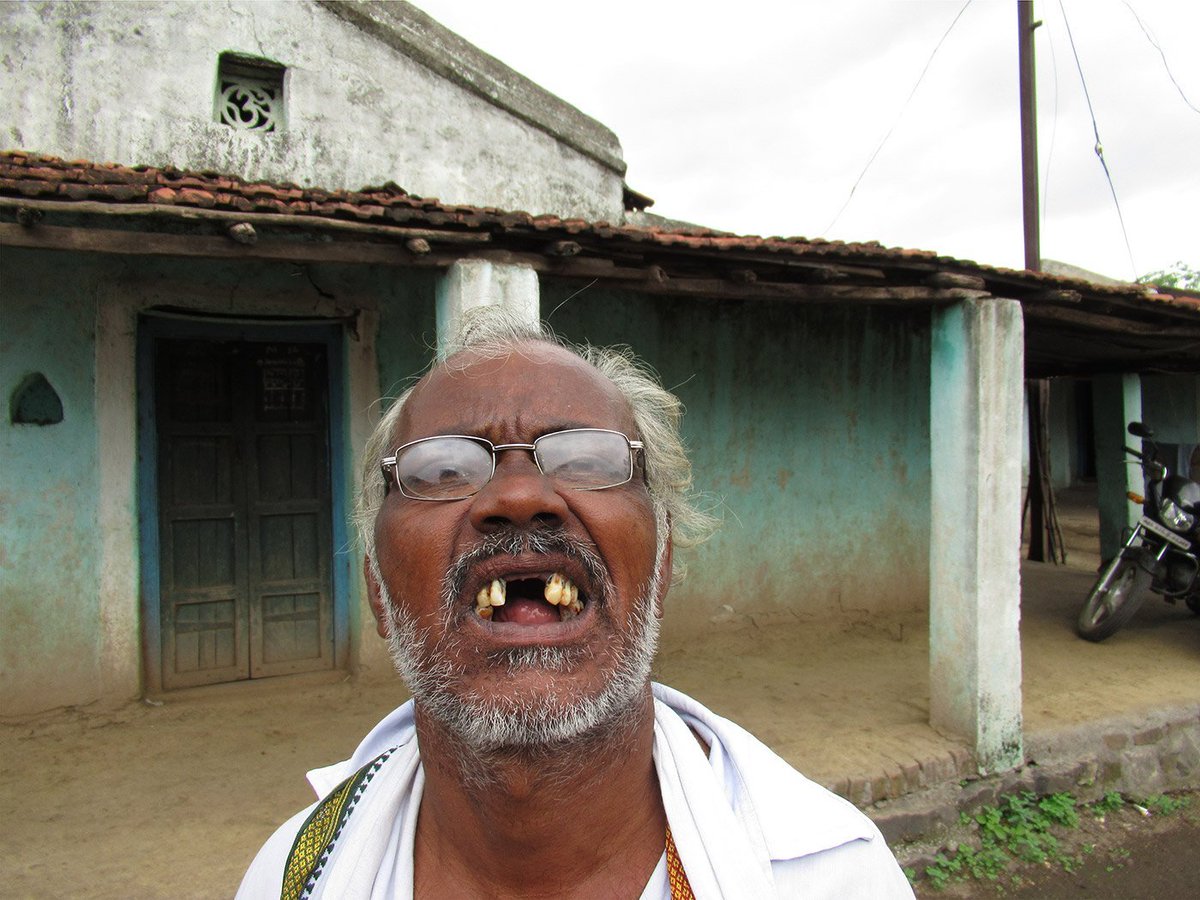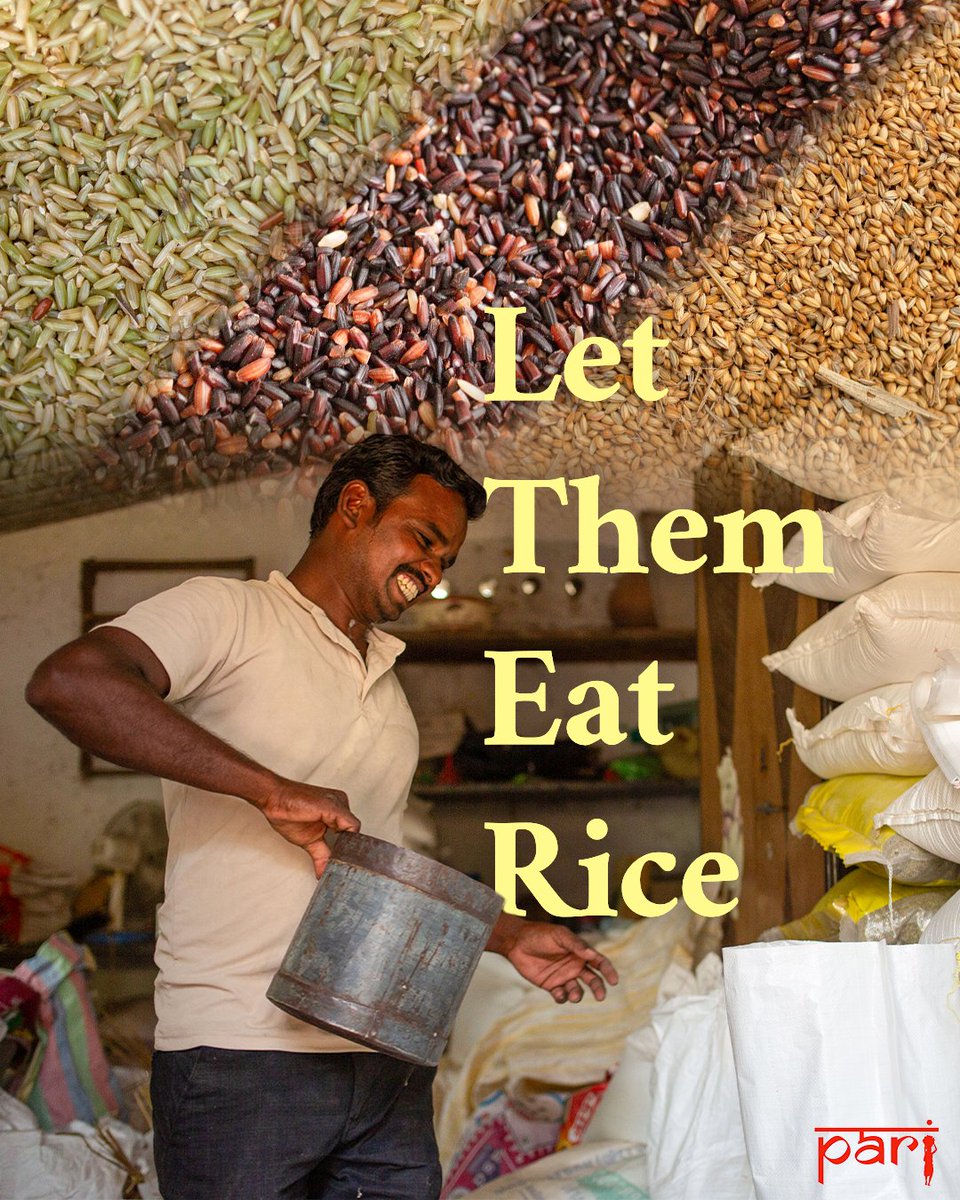Will the party who emerges victorious in the #MaharashtraAssemblyPolls address the state's deepening #watercrisis. Read on to know how the billion dollar thirst economy has devastated rural #Maharashtra. @parthpunter @journohardy @Raaweeshastri @PSainath_org @indiawater
"No one in our village has that kind of money. I'll end up in debt & like my plants I too won’t survive,”rues Prahalad Dhoke of #Marathwada who had to give up his orchards to buy water for his cows & blames the govt's insufficient #drought relief measures. bit.ly/35MTh3p 



"We haven't once been supplied with water tankers & we don't have enough money to buy them,”says Manali Padwale who,like all the women in Galtare,walked 25 kms daily in the scorching heat to collect drinking water after the village's water sources dried up.bit.ly/32qNYVz 





"When you are desperate for water, you have to consume what you get,”says Madhukar Jadhav from Sawarkhed where recurring droughts have forced ppl to drink fluoride-contaminated #groundwater from borewells,which has inflicted debilitating fluorosis on many. bit.ly/2oVP1xY 



Villagers like Karbhari Jadhav of Ganori village who tried to sink their own #wells to combat #Marathwada's frequent #drought are instead sinking in debt as the pay-offs and visits to government offices for years did not bring any of the alloted funds. bit.ly/2MoMRjx 



"We don’t get water, you do"
Women & girls of the #fishing community in Killabandar village spend hours scraping the bottom of a well for drinking water, and resent that their region’s #water is diverted to #Mumbai city. bit.ly/2MnSCxM
Women & girls of the #fishing community in Killabandar village spend hours scraping the bottom of a well for drinking water, and resent that their region’s #water is diverted to #Mumbai city. bit.ly/2MnSCxM

Shalubai Chavan of #Latur spends 8 hrs every day filling water for her family & even in the heat, feels guilty if she drinks any of it. Meanwhile, others in the region spend 3X the rate for water than #beer factories in #Aurangabad. bit.ly/32oSvb2 

Meanwhile, the state govt turns a blind eye to an unregulated borewell economy that thrives through the dry summers in #Osmanabad district with agents & rig owners cashing in on the desperation of #farmers to find water at any depth,any cost. bit.ly/2rK2Bki 

"For the rig-makers, rig-owners and drillers, this is boom-time. The farmer pays up, whether the wells yield water or not.” Not only does the billion dollar borewell industry sink desperate farmers in #debt, ‘paleo-historic storages’ are being breached. ruralindiaonline.org/articles/drill… 



Thirst has been Marathwada’s greatest crop during this great #warer #crisis where the water #markets are booming, and in the town of Jalna alone, tanker owners can reach sales of close to Rs. 1 crore each day. bit.ly/2oJfMG6 

Water-guzzling crops,water parks, luxury pools, deforestation-all contributed to #Maharashtra's #MegaWaterCrisis. For the rich,there is never a scarcity. For the rest, hope evaporates by the day. Something to remember during the #MaharashtraAssemblyPolls bit.ly/2W2lwqJ 



• • •
Missing some Tweet in this thread? You can try to
force a refresh






















